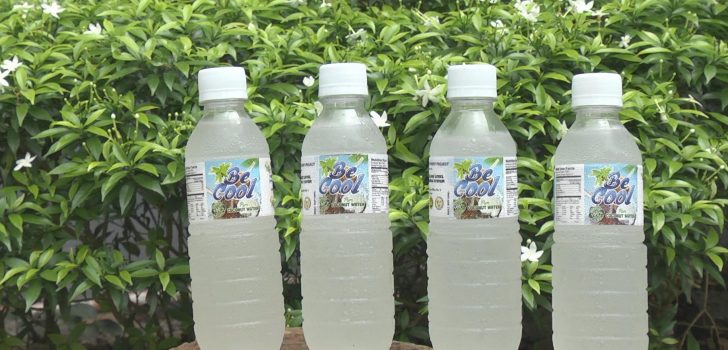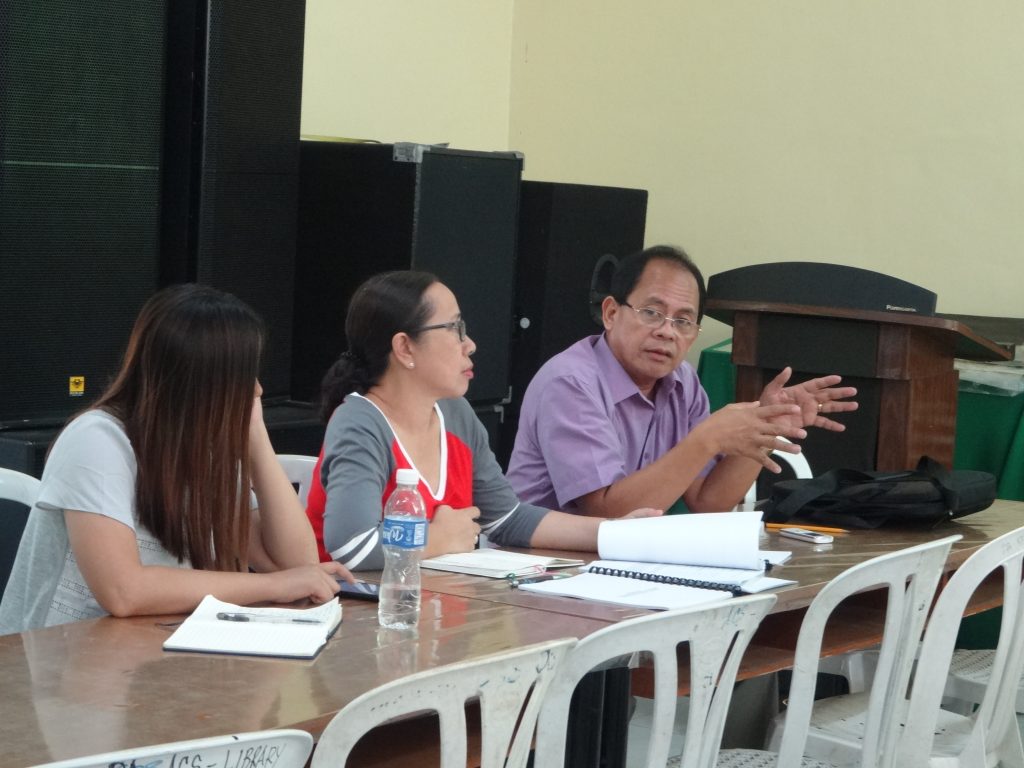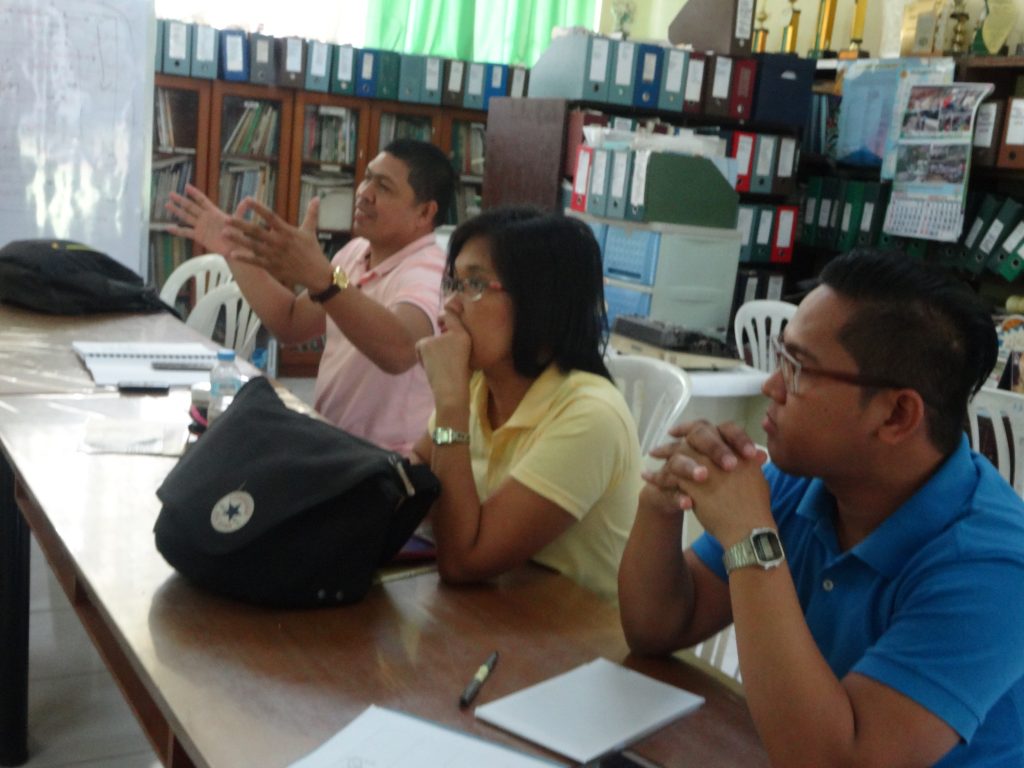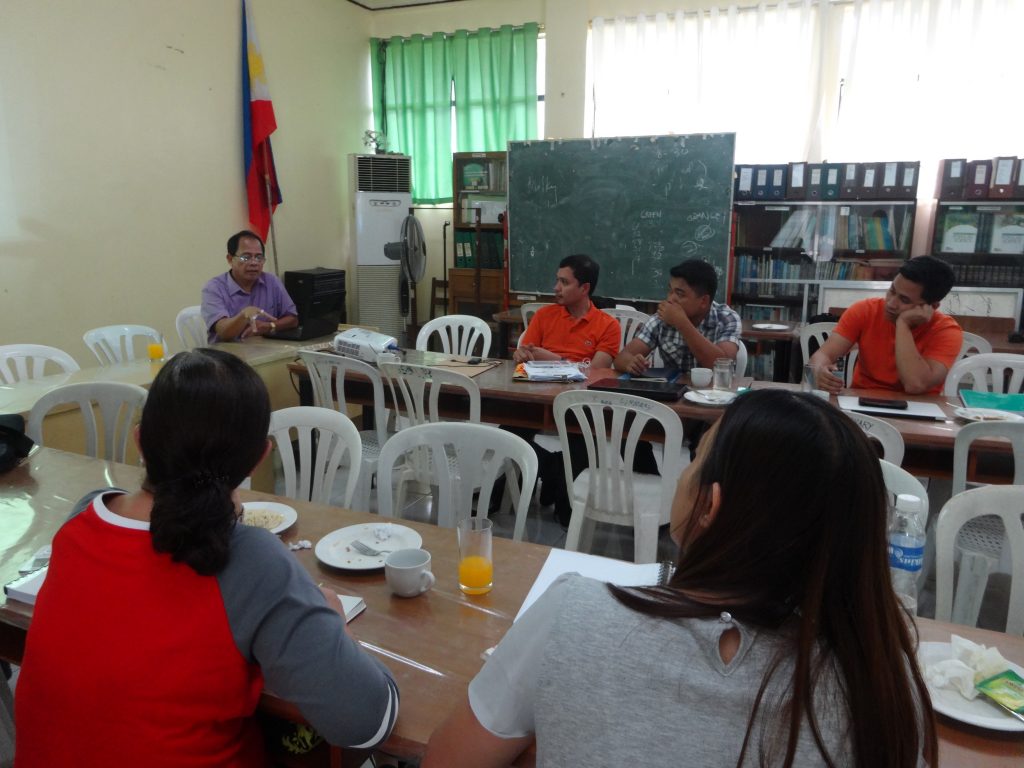 Natural. Nutritious. Safe. The Department of Science and Technology (DOST) Region V’s nutrient analysis shows that compared with commercial coco water and energy drinks, “Be Cool” coco water contains higher electrolytes like potassium and sodium which allow body cells to generate energy. “Be Cool” coco water is being processed at the Coco Water Processing Technology Pilot Testing and Business Incubation Facility at the DA Regional Technology Commercialization Center Bicol Integrated Agricultural Research Center (DA-RTCC BIARC) Compound in San Agustin Pili, Camarines Sur. (Photo by Hermito Antonio Privaldos, DA-PRDP RPCO V InfoACE Unit)
Natural. Nutritious. Safe. The Department of Science and Technology (DOST) Region V’s nutrient analysis shows that compared with commercial coco water and energy drinks, “Be Cool” coco water contains higher electrolytes like potassium and sodium which allow body cells to generate energy. “Be Cool” coco water is being processed at the Coco Water Processing Technology Pilot Testing and Business Incubation Facility at the DA Regional Technology Commercialization Center Bicol Integrated Agricultural Research Center (DA-RTCC BIARC) Compound in San Agustin Pili, Camarines Sur. (Photo by Hermito Antonio Privaldos, DA-PRDP RPCO V InfoACE Unit) PhilMech to adopt recommendations on DA-PRDP’s village level coco water pilot testing studies
The initial result of the Pilot Testing of the Village Level Coconut Water Processing System will now be adopted by the Philippine Center for Postharvest Development and Mechanization (PhilMech). This was mentioned by PhilMech Bioprocess Engineering Division Chief Ofero A. Capariño during a follow-up meeting of coco water project collaborators held on September 22, 2016.
According to Capariño, he was impressed with the documentations done by the Central Bicol State University of Agriculture (CBSUA) as supported by the Philippine Rural Development Project (PRDP) only that there are observations that need to be validated as far as the technology and operation is concerned.

PhilMech Bioprocess Engineering Division Chief Ofero A. Capariño (3rd from left) clarifies CBSUA’s initial findings on the feasibility of village level coconut water processing system during a project meeting held on September 22, 2016 in Pili, Camarines Sur.
He said that the pilot testing of the village level coconut water processing system in Bicol was a very good start-up and provided him with fresh inputs gained through actual experience and practice. Capariño furthered that the initial findings of CBSUA will be adopted in one of the on-going pilot testing projects of Philmech in Mindanao, under the funding support of the Bureau of Agricultural Research (BAR).
Based from CBSUA’s revised terminal report on the feasibility of village level coconut water processing system, an eight-hour operation of the coco water facility can process 1,431 mature coconuts and produce 498.13 liters or 1,482 bottled coconut water. The system has an efficiency rate of 88.39 percent with a capacity of 56.70 liters per hour. Each bottle of coco water incurs a processing cost worth P10.32. Meanwhile, attribute rating and preference test result showed that pasteurized coco water is more acceptable and preferred than commercial coco water.

Engr. Julius L. De Villa explains the proposed production schedule of the coco water facility to the project collaborators during a meeting held on September 22, 2016 in Pili, Camarines Sur. (Photo by Annielyn L. Baleza, DA-PRDP RPCO V InfoACE Unit)
To improve the coco water facility’s operation, CBSUA’s research team headed by Project Leader Hanilyn A. Hidalgo recommended the employment of six trained operators to take charge of cleaning in place (CIP), drilling and extraction, bottling and capping as well as quality control. For easy loading, CBSUA also suggested reducing the height of the drying cage. Also, to increase bottling accuracy, adopting a semi-automated filling machine was recommended.
Feasible but few refinements necessary
“Operationally, I’m convinced with CBSUA’s study and PhilMech’s technology. In general, this can be applied commercially,” Manolo Luis Herrera, PRDP South Luzon I-REAP Component Head, said. However, he cited the need for a few refinements in terms of operation, production, and pricing. He added that it is more logical to engage a coconut farmers’ organization or the private sector in performing the same operation to assess whether the technology actually works. “Can a farmers’ organization operate the facility? Can they sell the product? Will it increase their profit? Those are basic questions we need to answer in the next phase of the project,” he added.
The coco water challenge
PRDP South Luzon Director Shandy M. Hubilla lauded CBSUA for the comprehensive pre-final draft terminal report on the feasibility of village level coconut water processing system. Nevertheless, he said that the project collaborators should address a few more recommendations particularly in the technical and market aspects prior to large-scale commercialization. He added that the challenge lies on finding the qualified proponent group, ideally, a farmers’ organization that is into copra and virgin coconut oil production, to take on the actual operation of the coco water facility and sell the product on a sustained basis.
“The bottomline of this project is to increase farmers’ income. Coco water is a new and emerging product which has potential for growth. I want to see a PRDP I-REAP-assisted project here in Cam Sur that benefits the coconut farmers,” he added.
Hubilla also mentioned that PRDP is planning to conduct an investment forum with the private and public sector including the Department of Education, Department of Health and Commission on Higher Education before the end of 2016. The investment forum intends to raise awareness and capture the demand for coco water.

PhilMech Bioprocess Engineering Division Chief Ofero A. Capariño (center) provides an overview of PhilMech’s pilot testing project in Mindanao, under the funding support of the Bureau of Agricultural Research (BAR) to PRDP PSO South Luzon Director Shandy M. Hubilla and other project collaborators. (Photo by Annielyn L. Baleza, DA-PRDP RPCO V InfoACE
CBSUA will present the final terminal report on the feasibility of village level coconut water processing system to the project collaborators in the second week of October 2016. On October 3, 2014, PRDP signed a memorandum of agreement for the pilot testing of the village level coconut water processing system. It is a collaborative project among the DA-PRDP, DA-PhilMech, DA-Regional Field Office 5, Provincial Government Unit of Camarines Sur, and CBSUA to pilot test coco water’s market acceptability, profitability, product characteristics and machine efficiency prior to full commercial adoption. ### (Annielyn L. Baleza, DA-PRDP RPCO V InfoACE Unit)
